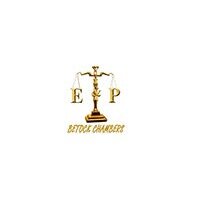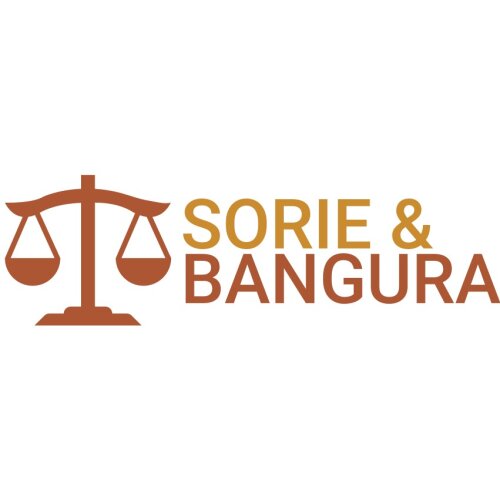Best New Business Formation Lawyers in Sierra Leone
Share your needs with us, get contacted by law firms.
Free. Takes 2 min.
Or refine your search by selecting a city:
List of the best lawyers in Sierra Leone
About New Business Formation Law in Sierra Leone:
Starting a new business in Sierra Leone involves navigating a range of legal requirements. From registering your business to obtaining the necessary permits, it's essential to understand the laws that govern new business formation in the country.
Why You May Need a Lawyer:
Whether you're unsure of the legal requirements for starting a business in Sierra Leone or need assistance with drafting contracts and agreements, a lawyer can provide invaluable guidance and support throughout the process. They can help you navigate complex laws and regulations, ensuring that your business is set up for success.
Local Laws Overview:
In Sierra Leone, new business formation is governed by the Companies Act of 2009, which outlines the legal requirements for registering a company. Additionally, entrepreneurs must comply with tax laws, employment laws, and other regulations that are specific to Sierra Leone.
Frequently Asked Questions:
1. What are the basic steps to register a new business in Sierra Leone?
To register a new business in Sierra Leone, you must first obtain a business name registration, then incorporate your company, obtain a business license, and register for taxes.
2. Is it necessary to have a local partner to start a business in Sierra Leone?
While it is not required to have a local partner, having a local representative can help navigate local laws and regulations.
3. What are the different types of business structures available in Sierra Leone?
The most common business structures in Sierra Leone are sole proprietorship, partnership, and limited liability company.
4. How long does it typically take to register a new business in Sierra Leone?
The registration process can take several weeks to complete, depending on the type of business structure and the completeness of the documentation submitted.
5. What are the tax implications of starting a new business in Sierra Leone?
New businesses in Sierra Leone are subject to corporate tax, VAT, and other taxes based on their revenue and operations.
6. Do I need a lawyer to register a new business in Sierra Leone?
While it is not mandatory to have a lawyer, legal advice can help ensure that your business is compliant with local laws and regulations.
7. Are there any specific industry regulations that I need to be aware of when starting a business in Sierra Leone?
Certain industries, such as mining and agriculture, have specific regulations that new businesses must comply with.
8. How can I protect my intellectual property when starting a new business in Sierra Leone?
You can protect your intellectual property by registering trademarks, patents, and copyrights with the relevant authorities in Sierra Leone.
9. What are the penalties for non-compliance with business registration requirements in Sierra Leone?
Non-compliance with registration requirements can result in fines, penalties, and even the closure of your business.
10. How can I access funding and grants for my new business in Sierra Leone?
There are various funding opportunities and grants available for new businesses in Sierra Leone, including government programs, NGOs, and financial institutions.
Additional Resources:
For more information on New Business Formation in Sierra Leone, you can contact the Sierra Leone Chamber of Commerce, Industry, and Agriculture or the Sierra Leone Investment and Export Promotion Agency.
Next Steps:
If you require legal assistance with New Business Formation in Sierra Leone, consider consulting with a lawyer who specializes in business law. They can guide you through the registration process and ensure that your business complies with local laws and regulations.
Lawzana helps you find the best lawyers and law firms in Sierra Leone through a curated and pre-screened list of qualified legal professionals. Our platform offers rankings and detailed profiles of attorneys and law firms, allowing you to compare based on practice areas, including New Business Formation, experience, and client feedback.
Each profile includes a description of the firm's areas of practice, client reviews, team members and partners, year of establishment, spoken languages, office locations, contact information, social media presence, and any published articles or resources. Most firms on our platform speak English and are experienced in both local and international legal matters.
Get a quote from top-rated law firms in Sierra Leone — quickly, securely, and without unnecessary hassle.
Disclaimer:
The information provided on this page is for general informational purposes only and does not constitute legal advice. While we strive to ensure the accuracy and relevance of the content, legal information may change over time, and interpretations of the law can vary. You should always consult with a qualified legal professional for advice specific to your situation.
We disclaim all liability for actions taken or not taken based on the content of this page. If you believe any information is incorrect or outdated, please contact us, and we will review and update it where appropriate.
Browse new business formation law firms by city in Sierra Leone
Refine your search by selecting a city.












